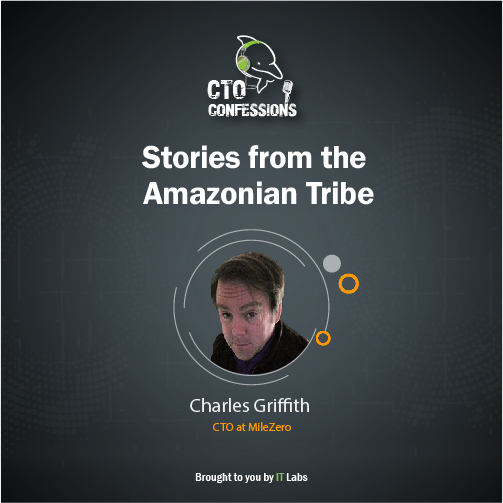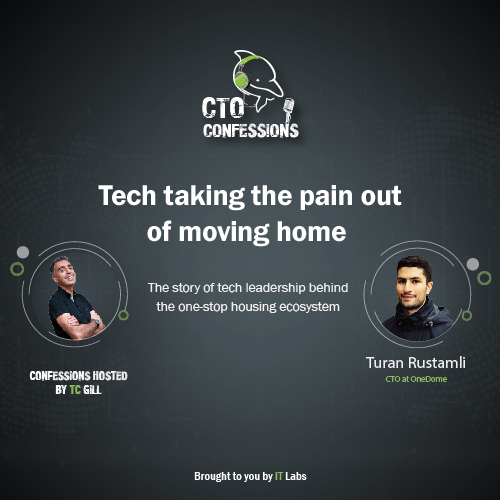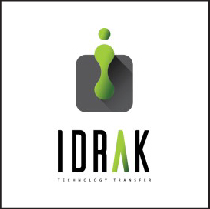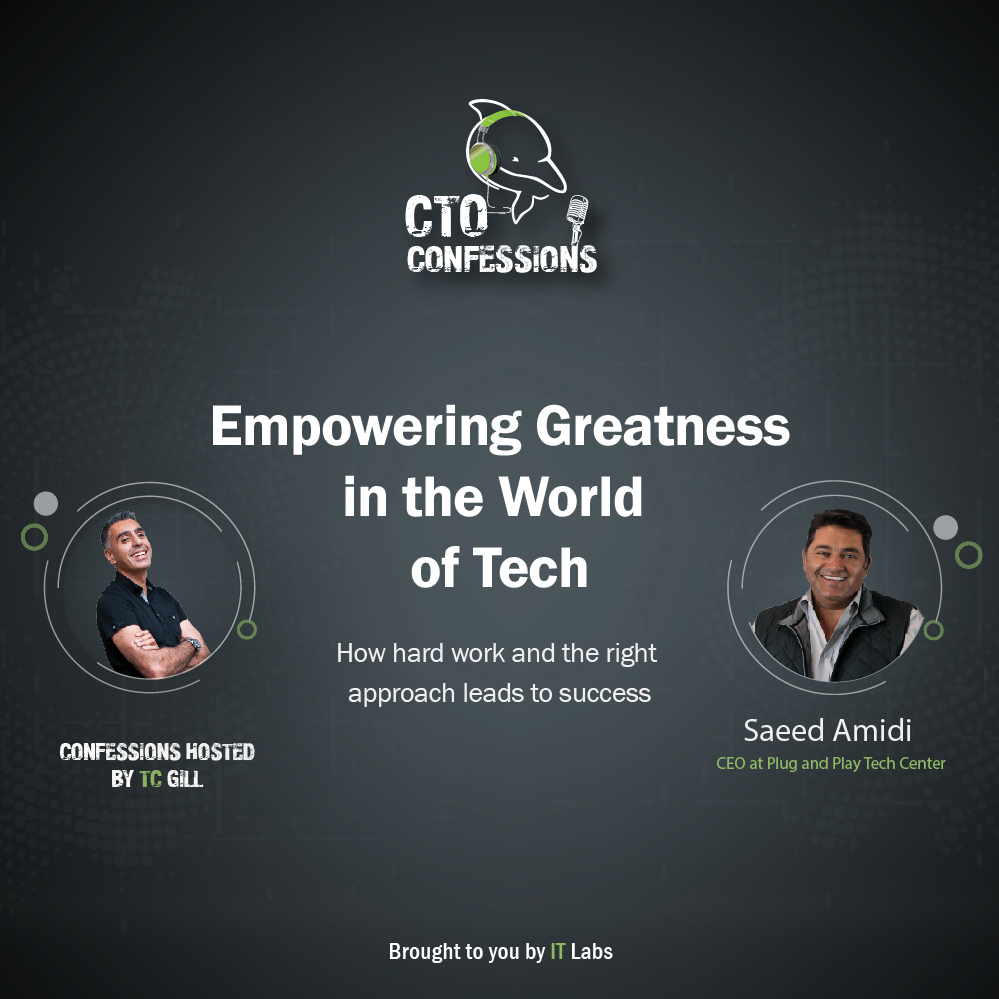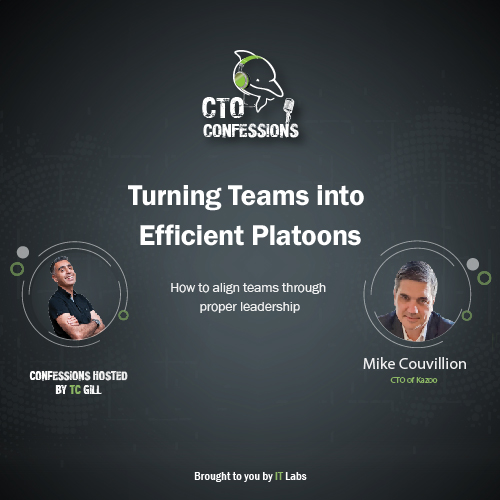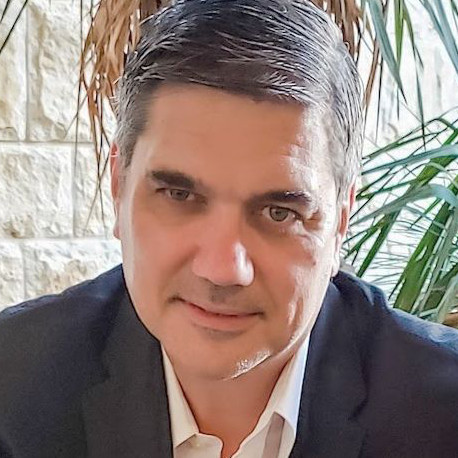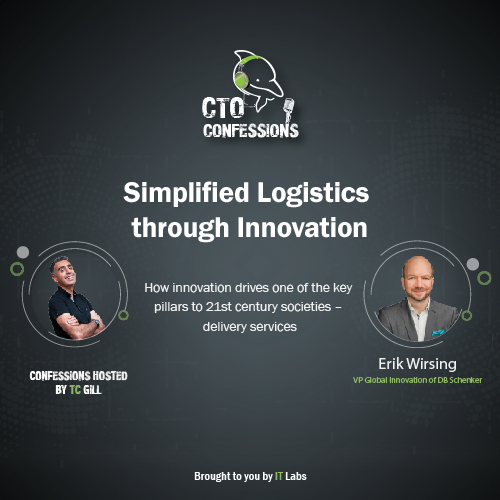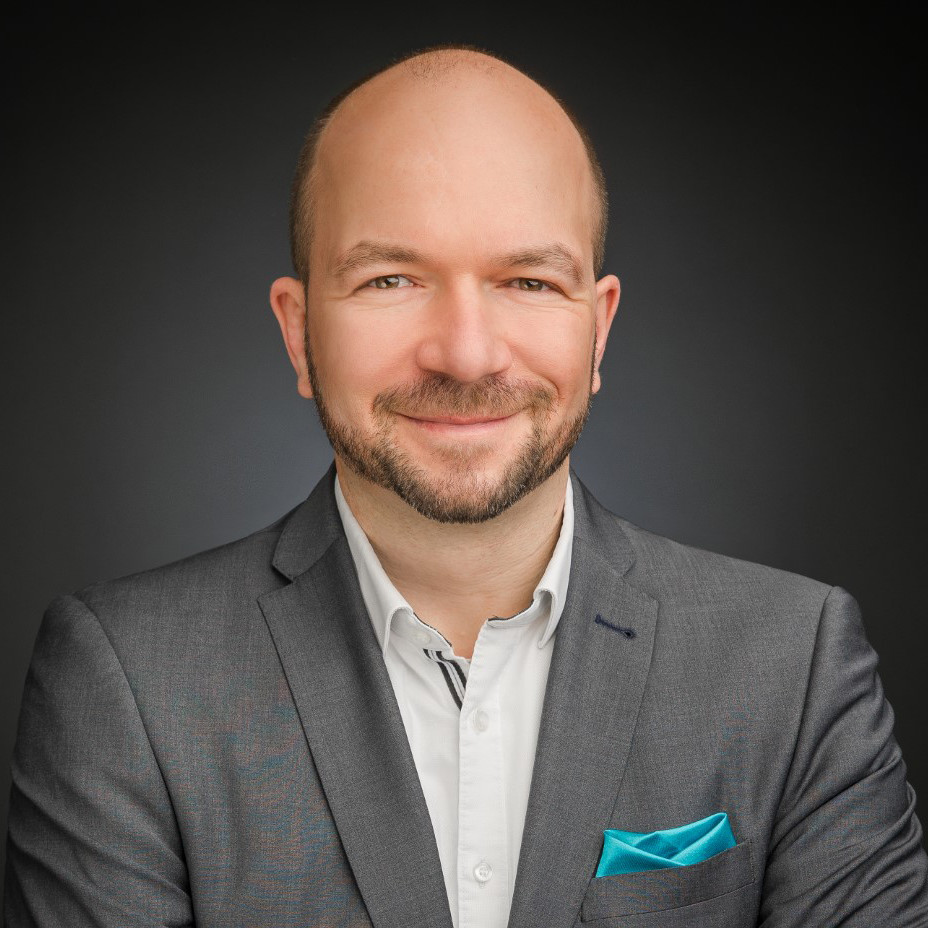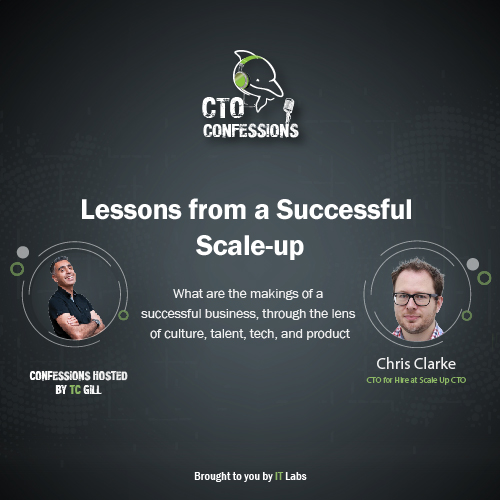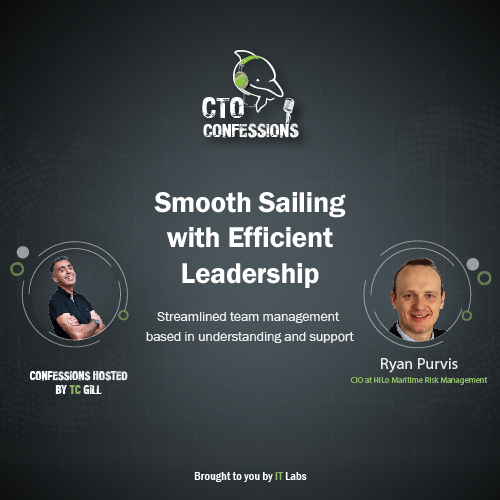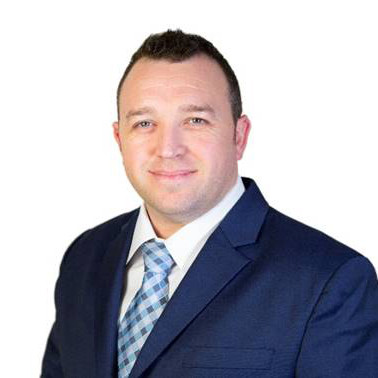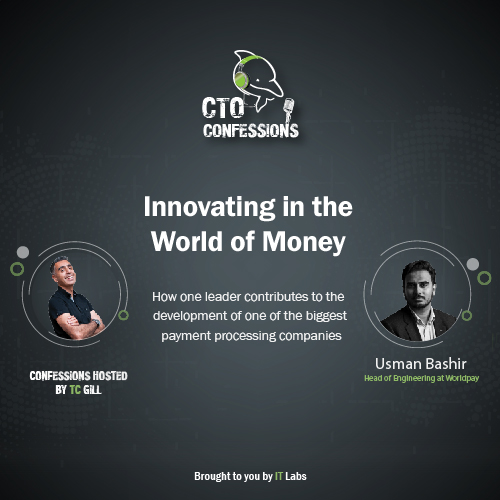Podcast: Stories from the Amazonian Tribe with Charles Griffith
Podcast – Stories from the Amazonian Tribe:
with Charles Griffith
Welcome to the start of a special series – in this series, we’ll be talking to techies and tech leaders who have worked at Amazon – the Amazonians – and how it has shaped their futures in the world of IT. And the one hosting this series will be Charles Griffith, CTO at MileZero, a Capstone Company.
Each of the individuals that will come on this series will bring their own unique brand of leadership and experience!
In this one, you’ll have the honor to meet Charles, as a nice intro in what we’re sure you’ll enjoy!
TLDR: Straight to the point
(Quick Links)
We all live busy lives, and sometimes a long podcast is too much of a time-footprint for our busy schedules. So, to help you get to the bit you’re more interested in, use our table of contents below. Quick links to help you get straight to the point.
1. Introducing the podcast and the guest
2. What is Ali's passion
3. The mistakes he learned from
4. Ali's way of creating high-performing teams
5. His advice to all aspiring leaders
Transform your technology organization with IT Labs teams.
Reach out to us.
Podcast: Tech Taking the Pain Out of Moving Home with Turan Rustamli
Podcast – Episode 84:
Tech Taking the Pain Out of Moving Home
How technology helps in solving and answering crucial questions
As the world is leaning heavily on the digital sphere to deliver solutions and lighten to load on all aspects of life, there is an ever-increasing need for platforms that will help make important life decisions smoother and easier. Meet One Dome, a company developed to help make the process of choosing and buying your next home a lot, lot easier. We sat down for a talk with Turan Rustamli, One Dome’s CTO, who shared the how’s and why’s behind this project.
“Sharing knowledge and experience only matters and has value when shared with context and at the right time – Succeed in doing this, and you have the marks of a leader.“
Turan talked a lot about the rationale behind this project, its motivation, and how his leadership style helped style the company and its success.
Key takeaways from the podcast:
- It’s immensely important to be an active member of every group you’re part of
- Seek out opportunities to learn, but also teach
- A holistic approach to an idea will always develop it into something valuable
TLDR: Straight to the point
(Quick Links)
We all live busy lives, and sometimes a long podcast is too much of a time-footprint for our busy schedules. So, to help you get to the bit you’re more interested in, use our table of contents below. Quick links to help you get straight to the point.
1. Introducing the podcast and the guest
2. What is Ali's passion
3. The mistakes he learned from
4. Ali's way of creating high-performing teams
5. His advice to all aspiring leaders
Transform your technology organization with IT Labs teams.
Reach out to us.
Podcast: Empowering Greatness in the World of Tech with Saeed Amidi
Podcast – Episode 86:
Empowering Greatness in the World of Tech
How hard work and the right approach leads to success
We all dream of finding the next big thing in tech, and some of us may remember coming into contact with some of the biggest tech companies in the world before they made it big – but how about being there and contributing to the formation of some of the biggest brands? That’s a blessing, a privilege only a few have enjoyed, but we got one of these few here on our podcast – meet Saeed Amidi, the CEO of Plug and Play, the world’s largest early-stage investor and business accelerator, a company which invested early in brands like Google, PayPal, N26, and many others.
“Before you embark on a journey through the tech world, make sure you’re the most knowledgeable on the subject you’re going in, or find and get the person who is. This will set you up for success early on.“
We sat down with Saeed to talk to him about how he approaches innovative ideas and start-ups, and what are the makings of a start-up that you can tell is destined for the stars.
Key Takeaways from the episode:
- Why hard work will always beat ideas
- How missed opportunities can sometimes be a blessing in disguise
- Why leadership is all about empowering people, and why sometimes leaders are viewed as an orchestra conductor
TLDR: Straight to the point
(Quick Links)
We all live busy lives, and sometimes a long podcast is too much of a time-footprint for our busy schedules. So, to help you get to the bit you’re more interested in, use our table of contents below. Quick links to help you get straight to the point.
1. Introducing the podcast and the guest
2. What is Ali's passion
3. The mistakes he learned from
4. Ali's way of creating high-performing teams
5. His advice to all aspiring leaders
Transform your technology organization with IT Labs teams.
Reach out to us.
Podcast: Turning Teams into Efficient Platoons with Mike Couvillion
Podcast – Episode 85:
Turning Teams into Efficient Platoons
How to align teams through proper leadership
CTOs are naturally curious creatures, and some of them have unconventional journeys to becoming tech leaders. In this episode, we have Mike Couvillion, CTO at Kazoo HR, who is, and get this – a fighter pilot turned CTO. We can dive deep into the ‘how’ and ‘why’ and tell it all, but truth be told, you can hear it from the man himself by just clicking ‘Play’.
“Responsibility and ownership of decisions in teams is all down to one aspect – clarity. If you’re clear with what you want and what you need, you’ll have a team that will follow you anywhere.“
Key takeaways from the podcast:
- Tech leaders should be skilled in the financial and business aspects of a business, not just the tech
- How the military actually has aspects of Agile methodology, which can help grow businesses and teams
- How hiring A-players will get you A-paying clients
TLDR: Straight to the point
(Quick Links)
We all live busy lives, and sometimes a long podcast is too much of a time-footprint for our busy schedules. So, to help you get to the bit you’re more interested in, use our table of contents below. Quick links to help you get straight to the point.
1. Introducing the podcast and the guest
2. What is Ali's passion
3. The mistakes he learned from
4. Ali's way of creating high-performing teams
5. His advice to all aspiring leaders
Transform your technology organization with IT Labs teams.
Reach out to us.
Podcast: Simplified Logistics through Innovation with Erik Wirsing
Podcast – Episode 87:
Simplified Logistics through Innovation
How innovation drives one of the key pillars to 21st century societies – delivery services
Some would say that technology drives the world, and innovation is in the driving seat. Well, let’s meet one of these – we got Erik Wirsing, VP of Innovation at DB Schenker. He sat down with TC to share his journey from techie to tech leader, as well as how he roles as a leader, and how he approaches innovation as a process. If you’re into innovation, you’re going to love this one. If you’re not into innovation…seriously?
“Successful leading is more about curiosity and freedom, than about anything else. The regulations and rules you put in place have to reflect that.“
With Erik, we dived deep into what it means to be up-to-date with innovation, and how to navigate through that storm of innovation that we’re living through in this age of tech.
Key Takeaways from the podcast:
- How being aware of the solutions available here and now can help you build for the future
- Why delivering things virtually can be the way of the future
- How to approach solving logistical problems on a larger and smaller magnitude
TLDR: Straight to the point
(Quick Links)
We all live busy lives, and sometimes a long podcast is too much of a time-footprint for our busy schedules. So, to help you get to the bit you’re more interested in, use our table of contents below. Quick links to help you get straight to the point.
1. Introducing the podcast and the guest
2. What is Ali's passion
3. The mistakes he learned from
4. Ali's way of creating high-performing teams
5. His advice to all aspiring leaders
Transform your technology organization with IT Labs teams.
Reach out to us.
Podcast: Lessons from a Successful Scale-up with Chris Clarke
Podcast – Episode 82:
Lessons from a Successful Scale-up
What are the makings of a successful business, through the lens of culture, talent, tech, and product
In this episode, we talk to Chris Clarke about his journey as the CTO and founder of EdTech company Talis. Having successfully scaled and sold the business, Chris now operates under the umbrella The Scale Up CTO – using his experience, success and mistakes to advise other businesses and startups on their scale up journey. Chris’s journey is one that’s rooted in the essence of technical leadership, and the turn from an individual contributor to becoming a catalyst for others.
“One of the pillars of success is trust, and building it is not easy, but the crucial thing to remember is that as a leader, you have to show the value you like your teams to have. Instill trust by demonstrating it.“
Key takeaways from the podcast are:
- How to build trust and respect by demonstrating it
- Why it’s important to own the process of hiring, and the role of genuine employee experience in doing so
- Delivery success based on the perfect tension between Engineering, Product and User Experience – and how to integrate this successfully with Agile
TLDR: Straight to the point
(Quick Links)
We all live busy lives, and sometimes a long podcast is too much of a time-footprint for our busy schedules. So, to help you get to the bit you’re more interested in, use our table of contents below. Quick links to help you get straight to the point.
1. Introducing the podcast and the guest
2. What is Ali's passion
3. The mistakes he learned from
4. Ali's way of creating high-performing teams
5. His advice to all aspiring leaders
Transform your technology organization with IT Labs teams.
Reach out to us.
Podcast: Smooth Sailing with Efficient Leadership with Ryan Purvis
Podcast – Episode 81:
Smooth Sailing with Efficient Leadership
Streamlined team management based in understanding and support
A fellow podcaster, Ryan Purvis, Chief Information Technology Officer at HiLo Maritime Risk Management, is one of those techies that simply had it in him to lead. In his own words, he “wasn’t the best developer skill-wise, but was a natural at breaking down complex processes and simplifying them for others to understand”, which we all know are crucial for tech leaders.
“When in a leadership position, the best way to go about your business is to find that sweet spot between providing support for your teams, and not being the bottleneck.“
From starting out in Johannesburg as a developer, he quickly climbed through the ranks, doing gigs in various industries, before ending up in HiLo. Here, you can hear all about his journey to becoming a tech leader, how he leads, and what it means to hold yourself responsible for your actions.
Key Takeaways from this podcast:
- How to never be the bottleneck to anything you’re doing
- How listening and trying to understand will lead your whole team to the solution
- Why accountability is paramount in not just company, but also personal growth
TLDR: Straight to the point
(Quick Links)
We all live busy lives, and sometimes a long podcast is too much of a time-footprint for our busy schedules. So, to help you get to the bit you’re more interested in, use our table of contents below. Quick links to help you get straight to the point.
1. Introducing the podcast and the guest
2. What is Ali's passion
3. The mistakes he learned from
4. Ali's way of creating high-performing teams
5. His advice to all aspiring leaders
Transform your technology organization with IT Labs teams.
Reach out to us.
Podcast: The Unseen Security Keeping Us Safe with Matt Clark
Podcast – Episode 83:
The Unseen Security Keeping Us Safe
How cybersecurity plays a crucial role in our everyday lives
In this episode, we get a glimpse into the industry that makes our everyday lives easier, safer, and flow seamlessly – cybersecurity.
“Curiosity is what drives innovation and that passion within teams, but at certain points, we have to stop and ask ourselves – are we moving in the right direction? That’s what being a leader is all about – knowing how to balance and channel that curiosity in your teams and organizations.“
Matt Clark, the VP of Technology & Product Development at Smiths Detection, joined us to share his experience as a tech leader. We covered everything – from his beginnings in the industry, all the way to the challenges he thinks we’ll face in the foreseeable future, all with the purpose of shining a bit of light on an industry that is ever-present, yet invisible.
His unique leadership style and point of view all revolve around three focal points:
- How cybersecurity affects our everyday lives and how they’re different from other digital systems;
- Steps crucial for proper product/service development, marketing, and selling;
- The consequences of our actions, and how they can shape the future of a company, as well as the market.
TLDR: Straight to the point
(Quick Links)
We all live busy lives, and sometimes a long podcast is too much of a time-footprint for our busy schedules. So, to help you get to the bit you’re more interested in, use our table of contents below. Quick links to help you get straight to the point.
1. Introducing the guest Matt Clark
2. Matt’s journey to becoming a tech leader
3. Cutting-edge equipment and data extraction
4. The growing treat to security
5. Matt’s leadership style
6. Engineering challenges
7. Key takeaways from the podcast
Transform your technology organization with IT Labs teams.
Reach out to us.
Podcast: The Power of Curiosity with Ali Bouhouch
Podcast – Episode 80:
The Power of Curiosity
How curiosity drives innovation and quality leadership
Sustainability – it’s the thing we hear more than once every day, regarding human relationships, the way we work, and how we interact with the world around us and consume products. It all began as we started looking for ways to lower our impact on nature. One of the tech leaders driving us towards a more sustainable future is Ali Bouhouch, CTO & Digital Strategy Executive at SZENTIA, a company looking to revolutionize the skincare industry.
“The tension that the unknown creates is a test, and one that can be highly rewarding if you decide to put in the effort and lift that veil of complexity – a reward that comes with a deep sense of satisfaction that can empower you and drive you forward.“
TC sat down with Ali to learn more about what drives him, how he got to where he is now, and how he leads his teams.
Key takeaways from this episode:
- How to nurture curiosity without becoming engulfed by it (it’s important to stay curious, but also focused, as curiosity will always breed ideas, but some of them can interfere with ongoing processes and development)
- Why being your whole self at work can be beneficial (being your natural self at work can help you develop authentic relationships with your team, and make it easier to convey ideas and processes)
- Why it’s important for leaders to take the first step in initiating contact with their teams (leaders are in a position of power, so it’s their responsibility to set the foundation of the relationship with their teams)
TLDR: Straight to the point
(Quick Links)
We all live busy lives, and sometimes a long podcast is too much of a time-footprint for our busy schedules. So, to help you get to the bit you’re more interested in, use our table of contents below. Quick links to help you get straight to the point.
1. Introducing the podcast and the guest
2. What is Ali's passion
3. The mistakes he learned from
4. Ali's way of creating high-performing teams
5. His advice to all aspiring leaders
Transform your technology organization with IT Labs teams.
Reach out to us.
Podcast: Innovating in the World of Money with Usman Bashir
Podcast – Episode 79:
Innovating in the World of Money
How one leader contributes to the development of one of the biggest payment processing companiesworld
Worldpay is a service that many of us have used, sometimes knowingly, sometimes through other vendors, but the truth is, it’s everywhere. But how does one company get to this level? We got Usman Bashir, Head of Engineering at Worldpay, down for a chat with our TC Gill, in which he got down to sharing his amazing journey to becoming a tech leader, as well as all the cool and amazing tech he’s into right now at Worldpay.
“Learning is a process that can involve people, books, videos, whatever – but none of what we learn will become our second nature unless we do it, every day.“
After honing his skills as an engineer, Usman then had the chance to learn from more experienced heads and hone his leadership skills, which is something he has taken to as a duck to water – everything from then on, as they say, is history. He has developed into a leader that drives teams with passion and support, enabling them to express by delivering high-quality services and products.
Key takeaways from the podcast are:
- Why you should look for people who add to your culture, not the ones who like to align themselves to it
- Why teams need to be integrated into the feedback loops and how this helps the whole process of improving a product or a service
- How to lead people by letting go of control and still get the best results
TLDR: Straight to the point
(Quick Links)
We all live busy lives, and sometimes a long podcast is too much of a time-footprint for our busy schedules. So, to help you get to the bit you’re more interested in, use our table of contents below. Quick links to help you get straight to the point.
1. The makings of Usman the leader
2. Usman’s passion for technology
3. How Usman rolls as a leader
4. On managing and protecting teams
6. Handling the growing pains of an organization
7. His advice to aspiring tech leaders
8. Usman’s key takeaway


